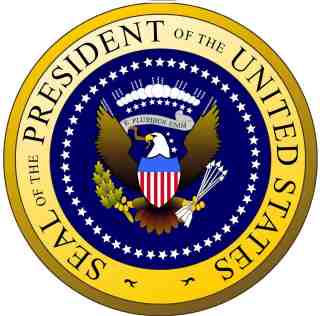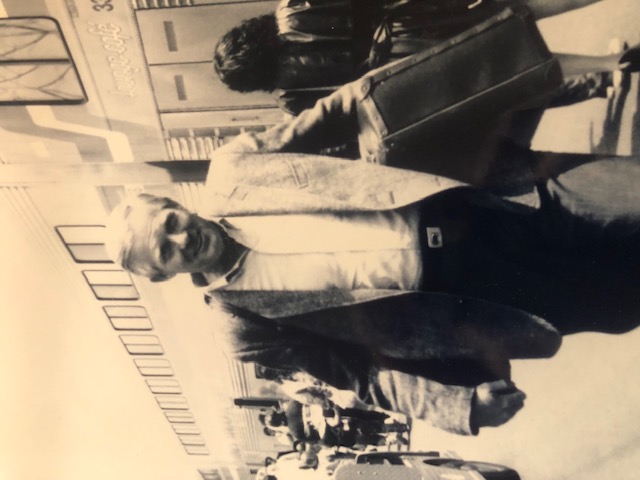
I had $20,000 in savings I would put to the effort. I have always been odd about money, you either had some, or you did not, but if I could eat, I was good to go either way. Besides, I was on a mission to make my life worth living and that was all the resource anyone really needs.
In time I shared my notions with a great many people: activists, journalists, senators, representatives, governors, and a couple of presidents.
OUR FOUNDING BOARD
President Jimmy Carter President Gerald Ford
Senator Barry Goldwater Senator George McGovern
Governor Michael Dukakis Senator John McCain
Senator Mark Hatfield Senator Gorden Smith
Senator Bill Bradley Senator Edward Brooke
Senator David Boren Senator Max Baucus
Senator Frank Moss Senator Charles Mathias
Senator William Proxmire Senator Bill Frist
Rep. Newt Gingrich Rep. Geraldine Ferraro
Rep. Jim Leach Rep. Pat Schroeder
Rep. William Clinger Rep. Ron Dellums
Rep. Esteban Torrez Rep. Claudine Schneider
Rep. Nancy Johnson Rep. Morris Udall
Att. Gen. Richard Kleindienst Archivist Adelaide Elm
CNIP President Richard Kimball
and 13 Other National Leaders
To a few, my idea of forcing candidates to fill out applications of employment seemed dreamy and hopeless, but as long as I didn’t expect their money or their time, they were happy to lend their names onto a piece of stationery. In years to come most did more, some a lot more, opening their wallets, influence, and reputations to raise millions, but for now it would fall to me and volunteers.
Collecting all the factual data and sorting it so that any citizen, liberal or conservative, could easily access it and find what they wanted to know was the challenge. Was it really possible?
At one early meeting, Bill Frenzel, a prominent Republican Congressman of his day, suggested that rather than build a new “googoo” organization to take on this mammoth task, maybe one already existed that could be convinced to take it on. “Googoos” was a condescending term used by some foundations when referencing non-profits interested in good government.
Anyway, that started a series of meetings in Washington, D.C. with other national good government groups, the first “googoo” being the League of Women Voters (LWV).
Her name was Peggy Lampl and she was the League’s National Director. “Fabulous idea, if it can be done,” she wondered. “I will bring this up with our board.”
Turns out that the League’s board would have nothing to do with it, nor any other “googoo”, just “too difficult” they all contended. But Peggy and the former League President, Lucy Benson, became so excited over the notion that they joined our board.
Years later, after we found some success, the LWV decided we were competitors and became the only organization in the country that refused to let us tell their members that we existed or what we were attempting to do. That kind of “me, me, only me” mentality was just beginning to bite into the mind set of everyone in politics.
It would be six months before the “googoo-ey” inklings from my grass hut began to take hold, just as I was running out of money again.
At first, I lived quite happily on my earnings teaching as a substitute and a few classes at a local community college. Now, I fear that my listing the number of times I went broke in this story may make me sound crazy generous. I was not crazy generous! I was just locked into a Quixotic exciting adventure to save democracy. I was going to bring home the Grail. Besides, as I said, I never worried about money, but then I had never experienced hunger, cold or periods without clothes or shelter. I just didn’t have much or as Thoreau, a nineteenth century philosopher, suggested: make yourself rich by making your needs few.
I had volunteers, lots of them, friends that helped in my Senate run who still believed in me. Some were new friends who became supporters after hearing commentaries I made on the local PBS television and the all-news radio station that I was having some fun with on the side. I arranged a series of mini TV debates against the Chairman of the Republican Party and Richard Kleindienst, a wrongfully vilified former Nixon Attorney General. Sometimes I would debate, sometimes I did simple commentaries. I enjoyed them all, particularly my last one when the station decided my services were no longer necessary.
Chomping down on one of my mother’s favorite childhood meals, a baloney and margarine sandwich, I turned the TV on to a religious program featuring a fellow by the name of Robert Tilton. This guy, so sleazy, with religious gimmy-gimmy so disgusted me that it became difficult to down the childhood slop in my mouth.
So, I teed off with that afternoon’s commentary:
“What is the most disgusting thing you can think of? Is it waking up one night to find a fat tick suckling from the tender tissues of your armpit? Perhaps it would be licking the bottom of a bus station toilet seat. For me it is neither of those things. For me it is television preachers, who prey on the old, sick and lonely for what money they can swindle them out of……”
I was told that my comments received a record number of caller complaints, that the station had never seen anything quite like it.
“Mr. Kimball, I am afraid we can no longer air your commentaries,” said an impressed but apologetic station manager, “Was it the toilet seat comment?” I asked? “Was it a bit over the top?” As I relistened to my commentary, YEAH, the toilet seat – that was over the top.
Fourteen hundred candidates were running for federal offices alone. Gathering facts for all that, would be a considerable undertaking for dozens of trained well-paid professional staff, of which we had none.
Again, I thought perhaps we might design collaborations between a few large “goo-goos” willing to work together for the common good. But that was a notion that would remain as successful as trying to hitch a ride to the moon on a gnat’s wings.
I began to focus our fundraising on foundations that I thought would surely want to give this idea a go. I asked two students (former volunteers on my Senate campaign) to research and list every foundation that seemed to have any interest in civics education. A week later they returned with a list of 130 such foundations.
Then I set up a system to write grants that would be overseen by a professor that taught grant writing at the University of Arizona. In the end we pumped out those 130 grant requests. One hundred, twelve foundations didn’t respond, with all those that did rejecting us. Dumbfounded, I called each and every one of them. Of the few that had taken the time to consider the proposal, most thought no one would use the data even if it could be collected. As one major foundation said, “It’s just not sexy enough, Richard. It is too academic, too cerebral, voters won’t use it.”
More exposing, I noticed that in the pile of rejection letters there were many curiously identical, almost word for word. Ahhaa! Foundation staffs were clubby.
Getting grants required getting in the door. You had to know people or know people who knew people if you were going to pry any funds for a new “Goo-goo” – it was politics. I knew politics and started camping in cities, until I pried open some of those doors. Only then did they start to think about it.
As the elections of 1990 approached, there was no possibility of covering 1400 congressional candidates. With an all-volunteer staff and no office other than my living room, I would need to “throw down,” if we were going to move on.
I sold my house and used the money to operate. I rented a small leaky-roofed apartment near the University of Arizona. We converted the apartment into offices while I used a room in the back to sleep in. For $4.50 an hour I hired my most loyal campaign volunteer, a wonderful young women named Lorena O’Leary, who I would abuse for the next eight years in every way you can abuse someone except sexually. She worked like a dog, almost as hard as I did. We got our hands on two IBM Selectrics, the cutting edge end of the typewriter world, put in a couple of phones, about 40 pounds of paper and index cards to collect and organize data on, and a couple of trash cans that served the dual purpose of collecting trash and the rain that would drip through the ceiling on the infrequent occasions of rain in Tucson.
We caught a lucky break right away. A break that would deliver a badly-needed piece of equipment and inform me that I had been celebrating my birthday for some 40 years on the wrong date.
An astrologist, a faith I have little patience for, walked through our office door. She was covered with scar tissue from some undiscussed horrid event of long ago. Seeing her walk in, carrying a big box, I feared my expression might give away the shock I felt at her appearance.
Three quarters of her face and neck, along with both arms were covered with heavy latticed scar tissue. After helping her with her box and reaching to shake hands she said, “I have a computer I would like to donate but I have a condition?”
A computer would save us a great deal of work. “That would be great,” I said, “What is it I can do for you?” She became unsettlingly serious, “I want to do your star chart and I need the time and day you were born.”
It was not the kind of quid pro quo I had become accustomed to in politics. With such a strange but simple request I told her that I was born on October 20th, 1948, but that I did not know what time of day. “That’s all right, if you know what hospital it was, I can find that out.”
I told her the hospital, thanked my lucky stars as she headed out to research that moment in my mother’s life when she decided to give me that one last wailing groaning push. I had been a big baby.
The computer was such a prize that we gave it a name, George, and when it was retired less than a year later, I insisted that it remain in our archives for decades.
That odd mystical lady was to return a week later a bit upset. She told me that she could not get what she wanted because the hospital had a fire back in the 1950s and the original records no longer existed. The best she could do was an old newspaper clip from Tucson’s morning newspaper.
It appears that the paper got a big break from some heavenly source the day before I was born and reported my October 20th birth in the October 19th edition, thus announcing my coming a day before I came, beating everyone, including my mother, to the event.
Although my travels put us on some foundations’ radar, there wasn’t nearly enough money to cover all the congressional races to demonstrate voters’ willingness to defend themselves if they had a source with which to do so.
I chose to limit our research to just 24 congressional candidates in two states, North Carolina and Nebraska. They both had heated senate races with one being of particular interest in North Carolina. It was between an old, entrenched, anti-civil rights, anti-voting rights, race baiter named Jesse Helms and a new progressive and black former mayor of Charlotte named Harvey Gantt.
With friends and volunteers, the research progressed quickly in all five categories, comparing detailed biographies, ratings, campaign contributions, voting records and current issue positions as best as records showed.
The delivery method selected was named The Toll-Free Voter’s Research Hotline, a 1-800 number that would be staffed by trained volunteers around the clock to look up any information on any candidate a caller was interested in.
To do that would require more space, phones, computers, and less indoor rain.
We moved into a couple of rooms in a dumpy two-story office building with a little available space upstairs should we hit pay dirt and need more phones.
Sandwiched between an insurance agent and some fellow who repaired sewing machines, the rent was just above what we had, so I decided to give up the apartment we had used as an office and sleep in a bag under my desk. No big deal, it wouldn’t be a quest if you got to dine on foie gras and sleep in silky sheets.
Senator Bill Proxmire, D-Wisconsin, and Congresssman Jim Leach, R-Iowa, two early joiners of our board flew to Raleigh-Durham, North Carolina and Lincoln, Nebraska, held press conferences, and announced what we had created, and that if North Carolinians and Nebraskans were tired of the political commercials and want to get the facts on candidates, just call CNIP’s Toll-Free Voter’s Research Hotline.
We did not need to wait long. The announcement appeared in a number of papers, and a couple of late-night political talk show hosts adopted the Hotline, calling out its number like some mantra.
The two phones we had rang so often that we couldn’t make outgoing calls. We had hit pay dirt. It was then that I said good-bye to my retirement savings, rented the upstairs office and put in six more phones. It was not enough; all six lines would often light up at once. This required us to set up a red emergency button on a central table upstairs, strung out the door, down the stairs railing and to a buzzer in the downstairs office. Hit it, and all Hell broke loose where all researchers would burst out the door and run up the stairs to help with the phones. It happened every time some media person in Nebraska or North Carolina mentioned our number.

Thankfully, no one in the complex complained about the noisy clamor that occurred every time someone hit the red button. By the last week of the election, when the vacuum guy, insurance agent and a few other offices caught on to what we were trying to do, they would run out with us and give us a cheer as we launched ourselves up the steps to save voters with the facts.
(New chapters will be added roughly once a week)
Richard Kimball, Vote Smart Founder
Sign up on my Blog at: richardkimball.org
or
Medium.com at: https://medium.com/@daffieduck2016
